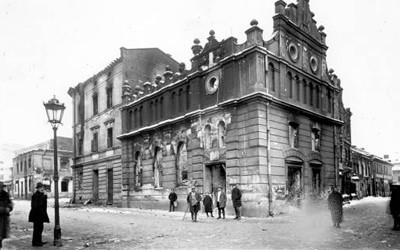The Lwów pogrom was a pogrom of the Jewish population of the city of Lwów that took place on November 21–23, 1918 during the Polish–Ukrainian War, in the aftermath of World War I.The Ukrainian National Council proclaimed the formation of the Ukrainian Republic on November 1, 1918 with Lviv as its capital. The Regency Council of the Kingdom of Poland declared Poland's independence a week later and formed the government on 14 November 1918. The battle of Lwów lasted until 21 November 1918. In the course of the following three days of unrest in the city, an estimated 52–150 Jewish residents were killed and hundreds injured, with widespread looting carried out by Polish soldiers, and those only pretending to be so, as well as lawless civilians, and local criminals. Historian Christoph Mick stated that not a single Ukrainian was murdered. The Poles did not stop the pogrom until two days after it began. Over a thousand people, including some soldiers, were arrested by Polish authorities during and after the pogrom. Some early accounts of the pogrom, listing multiple thousands of casualties, were likely exaggerated.





No Comments found